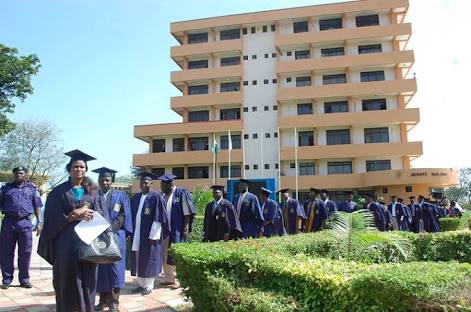Reevaluating the Relevance of Nigerian Graduates’ Education and a Call for Educational Transformation
In a viral Facebook post that humorously highlighted the plight of unemployed Nigerian graduates, the comment “the number of unemployed microbiology graduates now exceeds the count of microorganisms in Nigeria” drew attention to the challenges faced by Nigerian graduates.
This sparked a candid conversation about the relevance of university courses and the prevailing “school is scam” mentality.
In this article, we delve into the dilemma faced by Nigerian graduates, the disconnect between education and the job market, and the urgent need for educational transformation.
The Relevance of University Courses:
Recently, a Twitter user compiled a comprehensive list of courses offered by Nigerian universities, raising questions about their practical applicability in today’s job market. This diversity of courses has led Nigerians to a debate on the importance of making informed choices when selecting university courses. Many share the sentiment that pursuing certain courses in university can be a fruitless endeavor, contributing to the “school is scam” mentality.
The Impact of the “School is Scam” Mentality:
This prevailing mentality has eroded trust in the education system and is not limited to graduates alone. Even students have questioned the value of education, pointing to examples of relatives with impressive degrees struggling to find employment. This skepticism reflects a broader issue affecting many Nigerian graduates.
Breaking Free from ‘Educational Mental Slavery’:
Breaking free from the mindset that equates success solely with traditional white-collar jobs is a challenging task. The educational system primarily prepares students for these roles, leaving little room for creativity or entrepreneurship. First-class graduates often rely on scholarships to study abroad, but adapting to non-academic pursuits can be a challenge. As a result, many are pushed into teaching roles, further eroding the perception of education’s relevance.
Tragic Consequences of the Mentality:
The “school is scam” mentality has led some graduates to tragic ends, like the recent suicide of a first-class graduate. This tragic outcome underscores the need for a more holistic approach to education that fosters creativity and problem-solving skills.
The Role of the Educational Curriculum:
The educational curriculum in Nigeria often reinforces a narrow focus on academics, leaving little room for skills development, creativity, or entrepreneurial thinking. This gap has led some graduates to question the value of their education.
Reevaluating the Relevance of Nigerian Graduates’ Education:
Nigerian graduates frequently find themselves in jobs unrelated to their fields of study, with lawyers working in banks and engineers teaching in schools being common examples. The dire unemployment situation has pushed many into menial or blue-collar jobs, or even to pursue unconventional careers to make ends meet.
The Call for Change:
To address this issue, it is essential to reevaluate the relevance of certain courses within the Nigerian workforce. The mismatch between qualifications and job requirements highlights the need to inform prospective students about the practicality of their chosen courses. Additionally, the quality of education, particularly in practical sessions and access to resources, must improve.
Transforming Nigeria’s Education System:
A call for genuine STEM (Science, Technology, Engineering, and Mathematics) teaching and technical education is necessary. The system should admit more students into fields aligned with the economy’s needs while revitalizing non-professional courses to make them more relevant and profitable. The curriculum should encourage creative thinking and problem-solving, preparing students for real-life challenges.
In conclusion
The challenges faced by Nigerian graduates reflect a systemic issue within the education system. It is imperative to transform this system to empower graduates to thrive and lead in an ever-evolving world.
The responsibility lies not with the graduates but with the education system itself. Only then can Nigeria fully harness the potential of its graduates and address the disconnect between education and the job market.








Leave a Reply